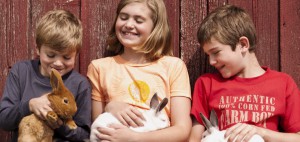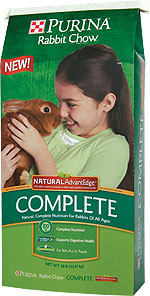 Effect of Weather Changes on the Health of Rabbits Everyone loves the changes in the seasons, especially the advent of spring. However, if you’re a rabbit, these changes can bring on some challenges that may not make you feel so good. Rabbits thrive on consistency, and they will do their best and are their healthiest when everything is the same. This also includes the weather.
Effect of Weather Changes on the Health of Rabbits Everyone loves the changes in the seasons, especially the advent of spring. However, if you’re a rabbit, these changes can bring on some challenges that may not make you feel so good. Rabbits thrive on consistency, and they will do their best and are their healthiest when everything is the same. This also includes the weather.
Changes in weather, particularly temperature, effect how much a rabbit will eat. Typically before a cold spell, rabbits will increase their consumption of feed in preparation. If a major storm comes through, even if they are protected in a good weather-proof hutch, they may not consume much food during this time. So when the storm clears and temperatures moderate, rabbits will jump back to their feeders to make up for the meals they missed.
Rabbits are “hind-gut fermentors”, with a large cecum. This is where a rabbit will digest their fiber. Digestion is actually carried out by millions of microorganisms. Since the rabbit does not produce the enzymes needed to digest fiber, cecal microorganisms carry out the digestion.
When a rabbit has a consistent feed intake, feed is digested very evenly. But when food intake varies – no feed consumed for a period of time followed by large levels of food intake – the microorganisms do not adjust well. This leads to excessive microbial activity., which produces the proverbial “upset stomach” in a rabbit. Often referred to as “Enteritis”, the end result, so to speak, is typically loose sticky fecal pellets or even diarrhea. In severe cases, food intake will drop off.
If enteris occurs in your rabbits, there are a few steps you can follow to help your rabbits recover quickly:
At the first sign of enteritis, reduce the amount of feed offered. Feeding 1/4 to 1/2 the amount of feed usually fed is a good level to start with.
A long-stem grass hay can be offered. Grass hay is high in fiber, and is consumed slowly. This will help stabilize cecal fermentation, which will firm up the loose fecal pellets.
After 2-3 days, food intake should stabilize and fecal consistency should improve. At this time, feed intake can be gradually increased to normal levels after 5-7 days.
A constant supply of clean, fresh water should be available at all times.
 Besides weather, other stresses like sudden dietary changes or treats, changes in lighting, predators around cages, and environmental disruptions like noises can potentially lead to enteritis. The above steps can be followed to get your rabbits back on track. To further reduce the potential for stress-induced enteritis, feeding a high-fiber rabbit food like Purina® Rabbit Chow™ Complete provides sufficient dietary fiber to promote healthy digestion. Again, rabbits thrive on consistency. By managing your rabbits to promote consistent food intake, you can help avoid the digestive problems.
Besides weather, other stresses like sudden dietary changes or treats, changes in lighting, predators around cages, and environmental disruptions like noises can potentially lead to enteritis. The above steps can be followed to get your rabbits back on track. To further reduce the potential for stress-induced enteritis, feeding a high-fiber rabbit food like Purina® Rabbit Chow™ Complete provides sufficient dietary fiber to promote healthy digestion. Again, rabbits thrive on consistency. By managing your rabbits to promote consistent food intake, you can help avoid the digestive problems.
New Braunfels Feed & Supply offers all the supplies you need to care for your rabbits. Caring for your rabbits health is essential, give us a call today or stop by and pick up our How-To Raise Rabbits book from Storey’s Guide.
**Source: Purina